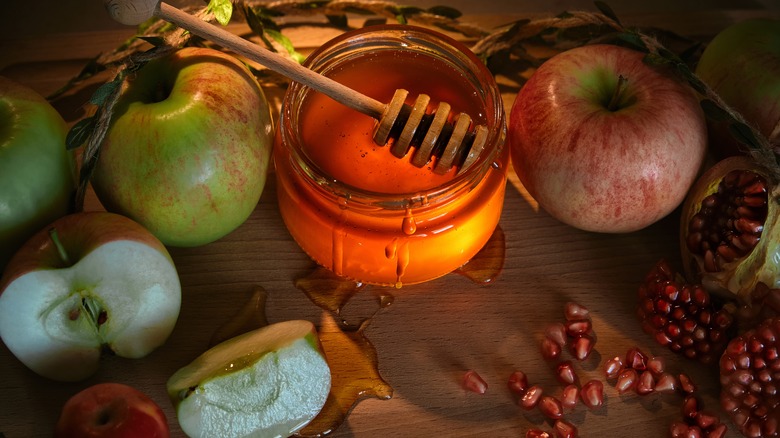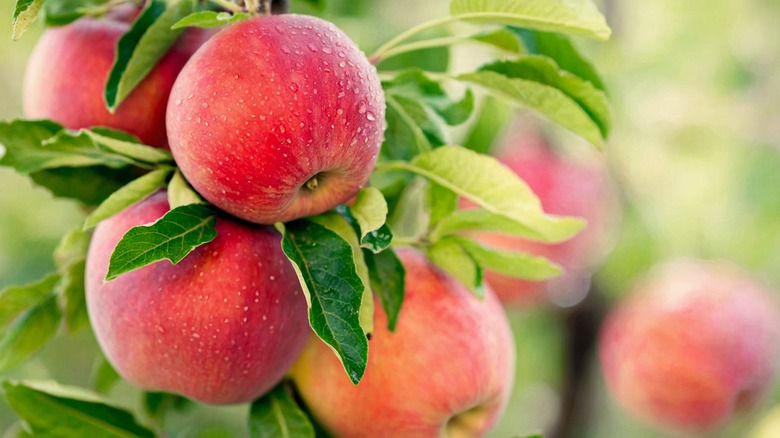Why Apples And Honey Are A Classic Treat On Rosh Hashanah
Rosh Hashanah is especially steeped in culinary traditions, and an important one involves a set of symbolic foods known as simanim. These include pomegranates to symbolize abundance, dates to symbolize the end of one's enemies, and heads. This could mean the head of an animal, like a sheep, or a head of cabbage or garlic, and it symbolizes the goal of being a leader, not a follower. Most of these foods gained their symbolic nature from their Hebrew names. For instance, the Hebrew word for date sounds like the verb "to end". But there's one Rosh Hashanah food whose symbolism isn't tied to a name, and it's arguably the most important of the holiday's many treats: Apples and honey.
Superficially, apples dipped in honey represent the desire for a sweet new year, but the symbolism goes much deeper than that. Honey is linked to manna, a food of mysterious and magical nature that sustained the Israelites during their Exodus from Egypt; the Torah describes manna as tasting like honey. There was also a practical nature to the choice, as honey was the dominant sweetener in the Israelites' diet. Sugar, which originated in New Guinea, was unknown to them. Honey is also used on Rosh Hashanah for dipping challah bread, but apples have a particular significance of their own.
The role of apples on Rosh Hashanah
Apples are symbolic for many reasons. For starters, they are key to the story of Jacob. As related in the Talmud and Midrash, Jacob carried the scent of the Garden of Eden, and it smelled like apples. Some Jewish schools of thought even refer to Eden as the Holy Apple Orchard. There is also a tradition on Rosh Hashanah of eating a new fruit, meaning a fruit not previously eaten that year. Apples are traditionally harvested in autumn, meaning they are new right around the time of Rosh Hashanah. This significance is strengthened even further by the Song of Songs, which hails apple trees as being a unique member of the forest, just as the Jewish people are unique. Indeed, a sweet apple tree is a rare find, as the vast majority produce unpleasant crab apples.
Though not a strict rule, it's traditional to eat sweet apple varieties on Rosh Hashanah, in keeping with the overarching theme of a sweet year to come. Sour varieties like Granny Smith, or even balanced ones like the resilient Cosmic Crisp apples, are not favored for this treat. Instead, sweet varieties are the apples to choose, which are often marked by intensely red skins. Fuji apples are ideal for the occasion, but you could also enjoy honey with Red Delicious, McIntosh, or Gala apples.

